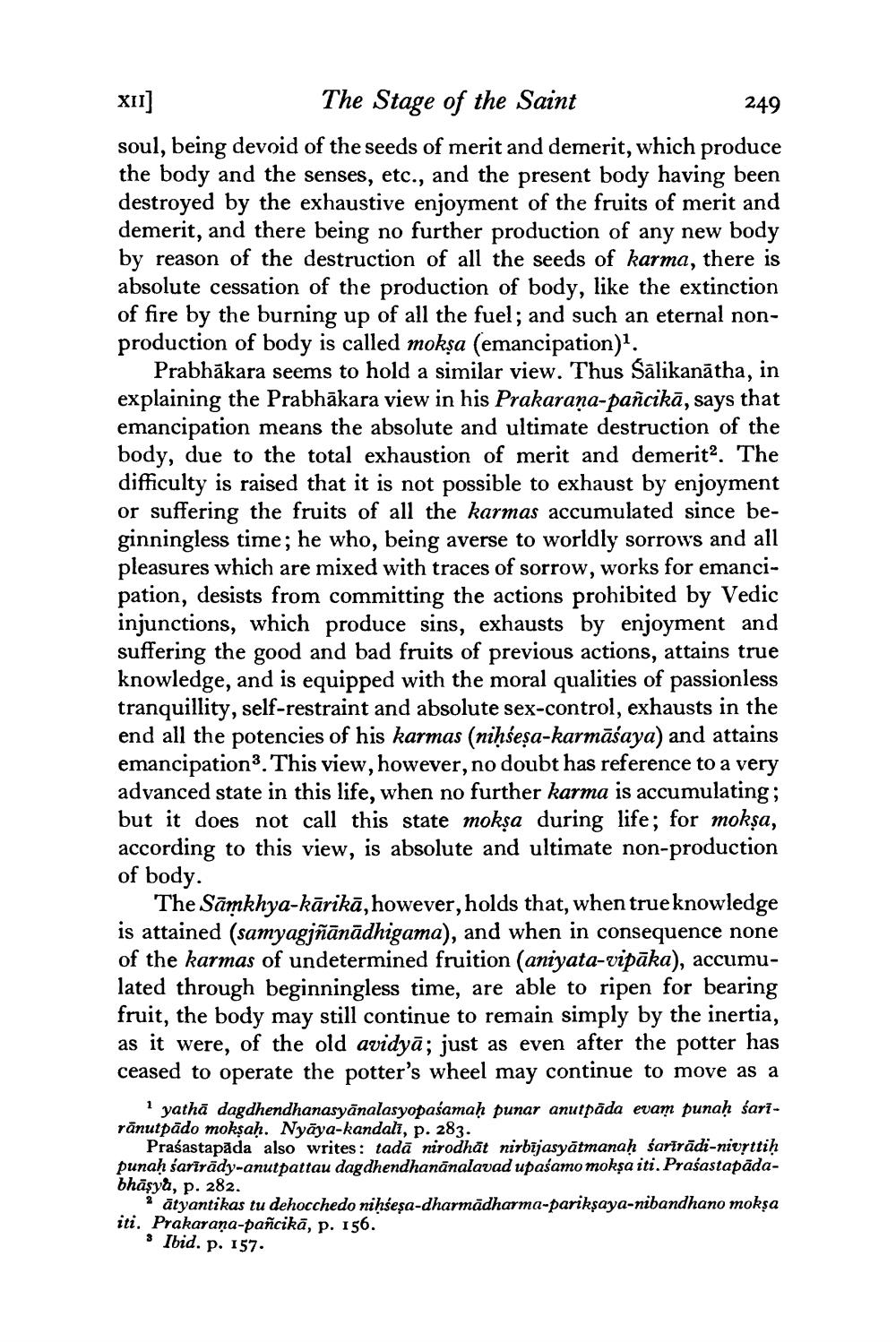________________
X11] The Stage of the Saint
249 soul, being devoid of the seeds of merit and demerit, which produce the body and the senses, etc., and the present body having been destroyed by the exhaustive enjoyment of the fruits of merit and demerit, and there being no further production of any new body by reason of the destruction of all the seeds of karma, there is absolute cessation of the production of body, like the extinction of fire by the burning up of all the fuel; and such an eternal nonproduction of body is called mokşa (emancipation)?.
Prabhākara seems to hold a similar view. Thus Sālikanātha, in explaining the Prabhākara view in his Prakarana-pañcikā, says that emancipation means the absolute and ultimate destruction of the body, due to the total exhaustion of merit and demerita. The difficulty is raised that it is not possible to exhaust by enjoyment or suffering the fruits of all the karmas accumulated since beginningless time; he who, being averse to worldly sorrows and all pleasures which are mixed with traces of sorrow, works for emancipation, desists from committing the actions prohibited by Vedic injunctions, which produce sins, exhausts by enjoyment and suffering the good and bad fruits of previous actions, attains true knowledge, and is equipped with the moral qualities of passionless tranquillity, self-restraint and absolute sex-control, exhausts in the end all the potencies of his karmas (niḥšeșa-karmāśaya) and attains emancipation. This view, however, no doubt has reference to a very advanced state in this life, when no further karma is accumulating; but it does not call this state mokșa during life; for mokșa, according to this view, is absolute and ultimate non-production of body.
The Sāmkhya-kārikā, however, holds that, when true knowledge is attained (samyagjñānādhigama), and when in consequence none of the karmas of undetermined fruition (aniyata-vipāka), accumulated through beginningless time, are able to ripen for bearing fruit, the body may still continue to remain simply by the inertia, as it were, of the old avidyā; just as even after the potter has ceased to operate the potter's wheel may continue to move as a
yathā dagdhendhanasyānalasyopasamaḥ punar anutpāda evam punaḥ sarirānutpädo mokṣaḥ. Nyāya-kandali, p. 283.
Prasastapāda also writes: tadā nirodhāt nirbijasyātmanaḥ śarīrādi-niurttiḥ punaḥ sarirady-anutpattau dagdhendhanānalavad upašamo mokşa iti. Prasastapādabhāsyà, p. 282.
* ātyantikas tu dehocchedo nihseșa-dharmādharma-pariksaya-nibandhano mokşa iti. Prakarana-pañcikā, p. 156.
3 Ibid. p. 157.




